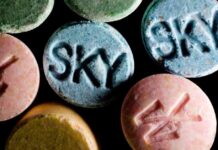Substance Use Disorder
Millions of Americans are affected by substance use disorders (SUDs). SUDs are chronic but treatable medical conditions that change the brain and behavior. While it is not an official diagnosis, some SUDs are more commonly called “addictions.” SUDs are complex conditions that make it difficult to control substance use, even when it causes harm.
According to a 2023 national survey, 1 in 6 Americans older than age 12 reported experiencing an SUD in the past year. More than 85% of them did not receive substance use treatment during that time.
Understanding substance use disorders
Over time, repeated drug use can lead to SUDs. Certain substances have a powerful effect on the brain’s reward system, leading to cravings and withdrawal symptoms that make it hard to quit using these substances.
Both legal substances (such as alcohol and nicotine) and illegal substances (such as heroin and cocaine) can lead to an SUD if used regularly. Even prescription and over-the-counter medications (such as some painkillers, sleep aids, and cough medicines) can be misused, which may also lead to an SUD.
Recovery is possible
The good news is that SUDs are treatable. Like other chronic conditions, they can be managed effectively. Thanks to ongoing research, there are evidence-based methods to help people with SUDs improve their health and lives, often known as being “in recovery” or “in remission.”
Treatment approaches
Several different treatment approaches exist for SUDs, each tailored to the individual’s needs. These may include medications to ease withdrawal symptoms, behavioral therapy to develop coping skills, and holistic support to address medical, social, work-related, and legal needs.
Getting help
Resources are available for those seeking help related to substance use, such as SAMHSA’s Treatment Services Locator and the SAMHSA National Helpline. Specific resources for alcohol use disorder (AUD) are also provided by the National Institute on Alcohol Abuse and Alcoholism.
988 Suicide & Crisis Lifeline
For individuals struggling or in crisis, the 988 Suicide & Crisis Lifeline provides access to caring, trained counselors who can offer help and support.
In conclusion, substance use disorders are common but treatable conditions that require understanding, support, and access to resources. By recognizing the signs, seeking help, and exploring treatment options, individuals can take steps towards recovery and improved well-being.
Sources: National Institute on Drug Abuse, MedlinePlus, Substance Abuse and Mental Health Services Administration
Image credit: Getty Images


















